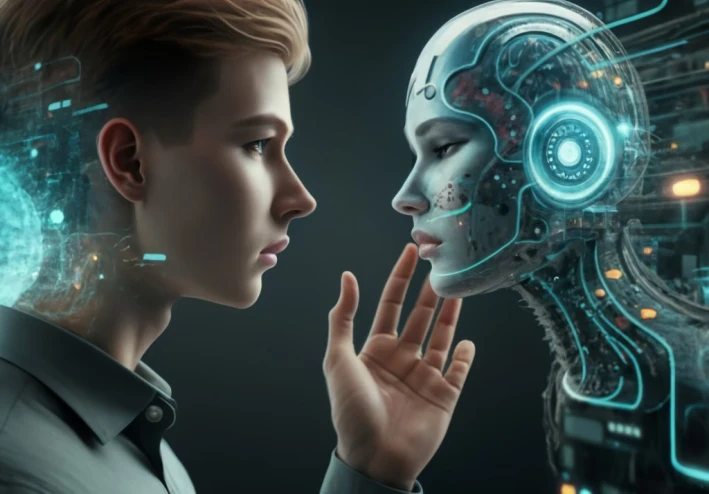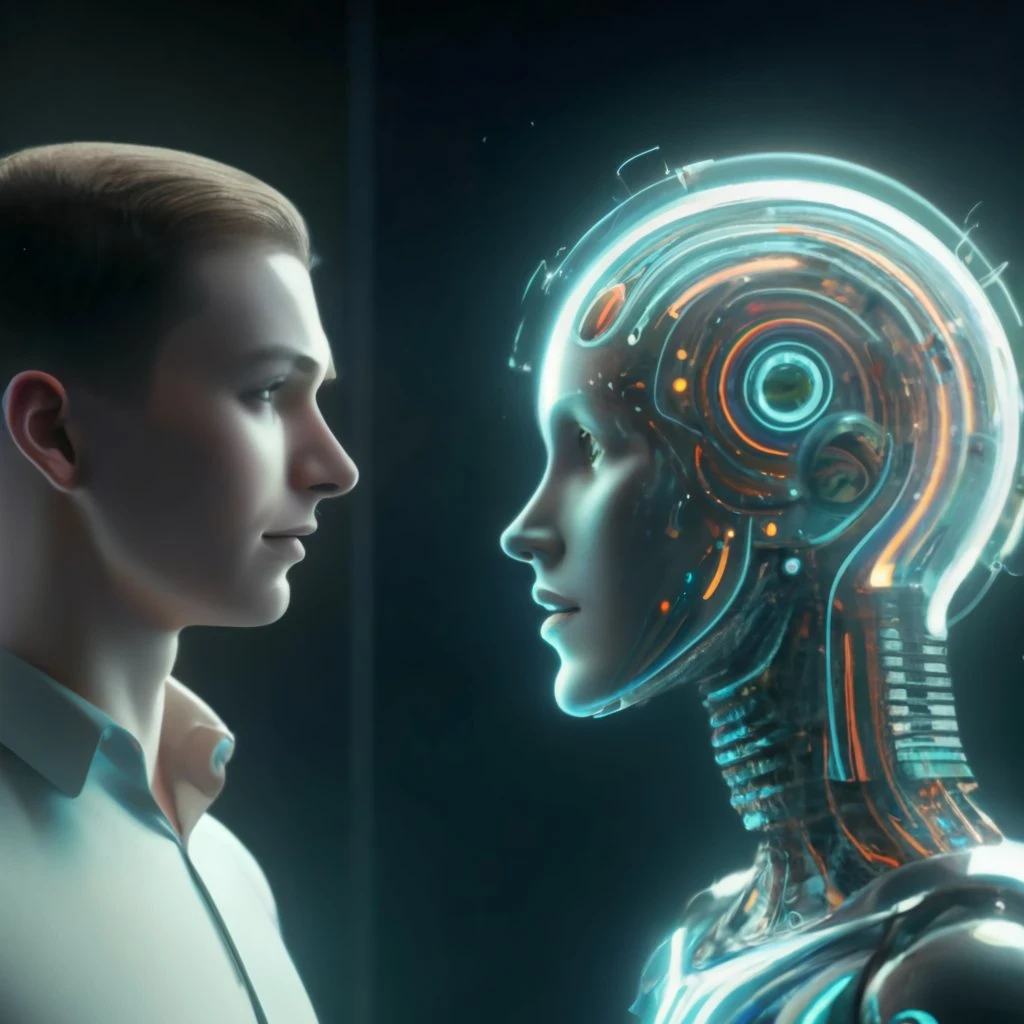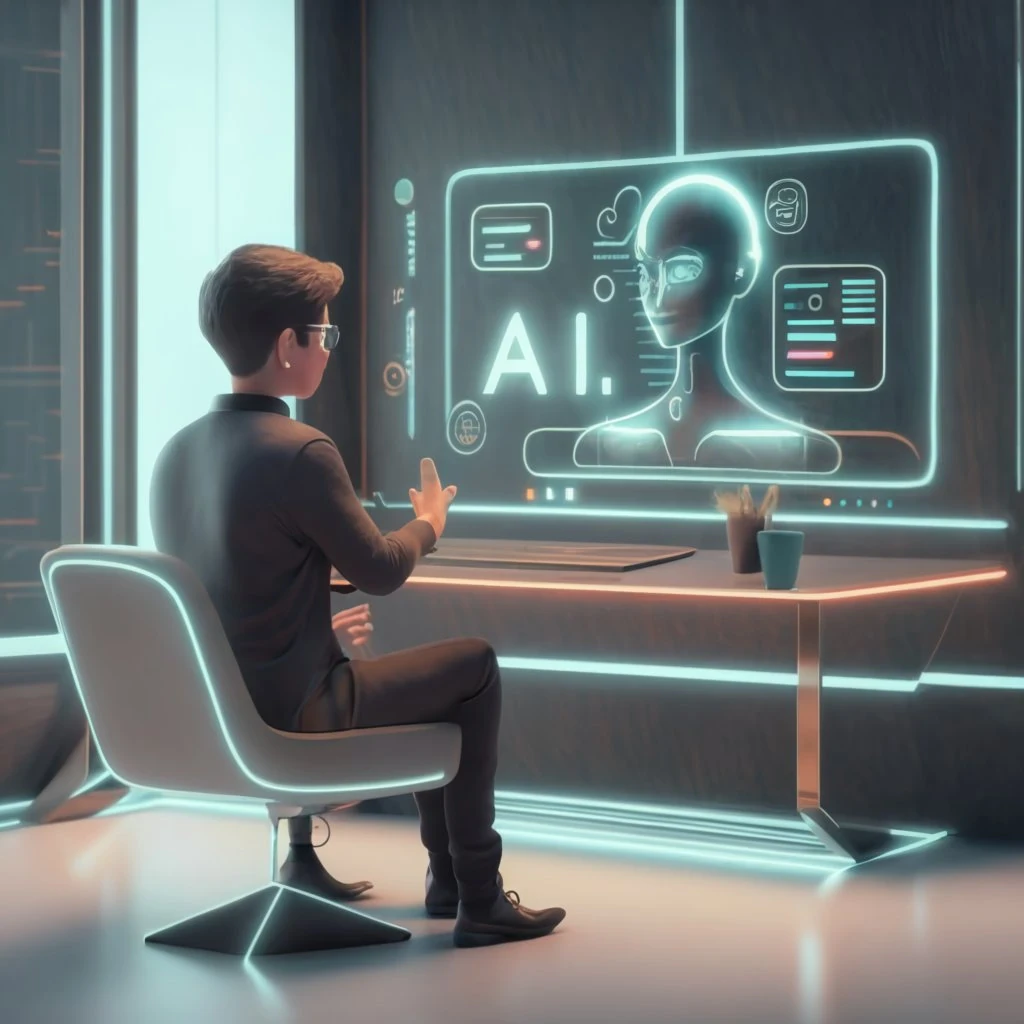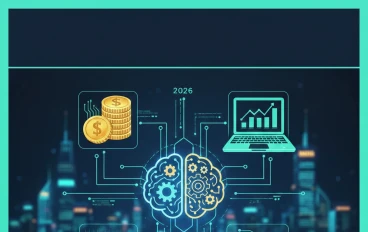
A technological revolution that shakes the throne of the present and shapes the future of humanity
Artificial Intelligence
A technical revolution shakes the throne of progress and shapes the human person

Introduction:
In a world witnessing rapid advancements and scientific breakthroughs, artificial intelligence (AI) emerges as a revolutionary technology poised to transform various aspects of our lives. But what exactly is AI? What are its components and impacts? How can we harness its potential without succumbing to its pitfalls?
Defining Artificial Intelligence:
Artificial intelligence is a branch of computer science dedicated to developing intelligent systems that mimic human cognitive abilities, such as learning, planning, problem-solving, and decision-making. These intelligent systems can perform complex tasks independently, without direct human intervention, thanks to their ability to analyze and learn from data.
Components of Artificial Intelligence Technology:
Artificial intelligence technology relies on a set of advanced algorithms and techniques, including:
Machine Learning:
Intelligent systems can learn from data without explicit programming, using complex algorithms like deep learning.
Natural Language Processing (NLP):
This technology enables intelligent systems to understand and interact with human language.
Computer Vision:
This technology empowers intelligent systems to analyze images and videos and extract information from them.
Robotics:
Robots are used to perform physical tasks in the real world, such as manufacturing and cleaning.
Positive Impacts of Artificial Intelligence:
Artificial intelligence offers numerous benefits to humanity, including:
Enhanced Work Efficiency and Productivity:
AI technology can automate many repetitive tasks, freeing up humans to focus on more creative and innovative endeavors.
Saving Time and Effort:
AI technology helps accomplish tasks faster and more accurately, saving humans time and effort.
Improved Quality of Life
: AI technology can develop new solutions to complex problems in healthcare, education, transportation, and other fields, contributing to an overall better quality of life.
Innovative Solutions to Complex Problems:
AI technology can analyze vast amounts of data and uncover new patterns, leading to groundbreaking solutions to previously intractable problems.
Opening New Frontiers for Scientific Discovery:
AI technology can analyze scientific data faster and more accurately, accelerating scientific breakthroughs in various fields.
Challenges Facing Artificial Intelligence Technology:
Despite its numerous benefits, AI faces several challenges, including:
Ethical Considerations:
Ensuring the ethical and fair use of AI technology is crucial, respecting human rights and dignity.
Privacy and Security:
Protecting personal data from unauthorized use and safeguarding AI systems from cyberattacks and breaches are paramount.
Impact on Jobs:
AI technology may lead to job displacement, requiring worker retraining and skill development to adapt to the changes.
Bias:
Some AI systems may reflect human biases, potentially leading to unfair outcomes.
Promising Prospects and Daunting Challenges
The future of AI technology holds immense promise for transforming all aspects of our lives in the coming years. As this technology continues to evolve, it will become more intelligent and capable of performing complex tasks, leading to radical changes in how we live, work, and interact with the world around us.
Some Future Applications of Artificial
Intelligence

Medicine and Healthcare:
AI will be used to develop new treatments, diagnose diseases more accurately, improve patient care, and provide personalized healthcare for each individual.
Education:
AI will personalize learning experiences for each student, better assess student performance, and offer additional support for those struggling with learning.
Transportation:
AI will enable self-driving cars, improve public transportation systems, and reduce traffic congestion.
Agriculture:
AI will enhance agricultural productivity, optimize resource utilization, and combat pests and diseases.
Energy:
AI will promote the development of new and renewable energy sources and improve energy efficiency.
Overcoming the Challenges:
While AI offers immense benefits, there are still numerous challenges to overcome before we can fully harness its potential. These include:
Ethical Considerations:
Clear ethical guidelines must be established to regulate the use of AI technology, ensuring its responsible and fair application.
Privacy and Security:
Robust safeguards must be implemented to protect personal data from unauthorized use and ensure the security of AI systems against breaches and cyberattacks.
Impact on Jobs:
Plans must be developed to assist workers who may lose their jobs due to AI technology, providing retraining and skill development opportunities to adapt to the evolving landscape.
Addressing Bias:
Measures must be taken to ensure that AI systems are fair and unbiased, avoiding the perpetuation of human biases.
Shared Responsibility:
Developing and utilizing AI technology is a shared responsibility among all stakeholders, including governments, businesses, international organizations, civil society, and individuals. Collaboration and teamwork are essential to ensure that this technology is used responsibly and ethically, benefiting all of humanity.
































